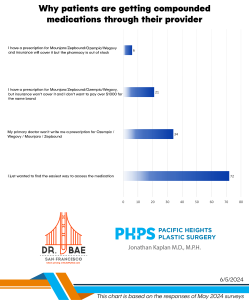As a consumer interested in various veterinary or medical services that are typically out-of-pocket, you may pay for those services with a credit card. But if you don’t have a credit card due to a less-than-stellar credit rating, you may have to turn to a medical credit card. These come in the form of iCare and CareCredit. These medical credit cards have come under fire lately in a recent NY Times article and followup Editorial.
 On the upside, these medical credit cards can give a consumer the ability to purchase a service that they normally couldn’t afford by providing a short term loan where the loan is repaid over 6 to 18 months, potentially with no interest charged if paid in full before the promotional payment period ends. On the downside, if they don’t pay the principal off by the end of the promotional payment period, interest rates of up to 26.99% (with CareCredit) can begin. And in a somewhat usurious fashion, interest can be charged on the entire initial loan, not just the remaining balance.
On the upside, these medical credit cards can give a consumer the ability to purchase a service that they normally couldn’t afford by providing a short term loan where the loan is repaid over 6 to 18 months, potentially with no interest charged if paid in full before the promotional payment period ends. On the downside, if they don’t pay the principal off by the end of the promotional payment period, interest rates of up to 26.99% (with CareCredit) can begin. And in a somewhat usurious fashion, interest can be charged on the entire initial loan, not just the remaining balance.
My only experience as a plastic surgeon with medical credit cards is with CareCredit. I do offer it in my practice for consumers that choose to use it. For my patients, the consumer is charged 0% interest if the loan is paid before the end of the promotional period or as high as 26.99% if not paid off before the end of the promotional period. CareCredit does double-dip and collect a merchant fee from the doctor for accepting CareCredit and this one-time off-the-top fee ranges from 1.9% to 14.9%. Not that anyone is concerned about the doctor’s fee but for completeness, I point it out here.
The New York Times articles shine a light on potential consumer abuses by these medical card companies. But it’s important to avoid completely exonerating the consumer from any responsibility when applying for credit. Sure the contract regarding interest rates on the CareCredit site may be confusing but no less confusing than the information provided by traditional credit cards or car lease contracts. And even though the contract is confusing, at least in the case of CareCredit, they overtly and explicitly and in very large print state what their interest charges are. Apparently the New York Attorney General felt similarly. In an agreement seen here, the Attorney General does not completely exempt the consumer from their share of responsibility in over-extending themselves. However, the agreement does require CareCredit to provide additional “touch points” where the consumer is reminded of the high interest rates and even provides a cooling off period where they can change their mind.
This is not to say that I have no sympathy for the potentially unsuspecting consumer. I am definitely conflicted on this subject because part of me feels that we are all responsible for our actions (I signed up to accept CareCredit knowing the merchant fees could be as high as 14.9%) but charging interest on the initial balance rather than just the remaining balance seems a little disingenuous. If you look at the fine print on CareCredit.com regarding interest charges, this is what they say:
“No interest will be charged on the promotional purchase if you pay the promotional purchase amount in full within the 6, 12, 18 or 24 month promotional period. If you do not, interest will be charged on the promotional purchase from the purchase date.”
This is quite sneaky – they don’t say you will be charged interest on the remaining balance. The contract says you’ll be charged on the purchase from the purchase date, ie the initial balance. Interestingly, in the agreement between CareCredit and the New York Attorney General, CareCredit can continue to charge interest on the initial balance rather than the remaining balance. I’m curious what Pier1 Imports, Rooms To Go or any other furniture chain does in their “No interest for 12 months” programs. Are finance charges assessed on the remaining or initial balance?
Regardless, if companies of any kind attempt underhanded tactics to manipulate the consumer, they should expect government intervention. But at the same time, buyers must beware. We are responsible for our actions as long as we are provided appropriate context in which to act.
Click here for the original blog post written by Dr. Jonathan Kaplan for BuildMyBod.?




